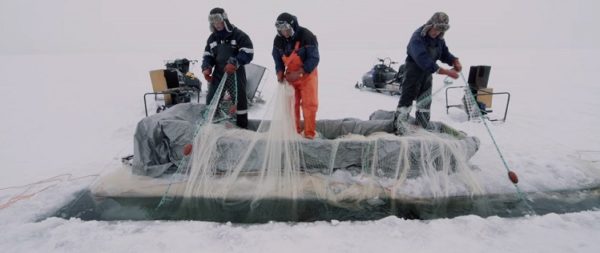Snowchange Cooperative (ICCA Consortium Member) has won the St Andrews Prize for the Environment for its Rewilding program. St Andrews is a prestigious global environmental accolade with a cash prize of 100,000 USD
First published on 10/19/2021, and last updated on 10/22/2021
Snowchange’s Landscape Rewilding Programme outlines a process to restore rivers, lakes, forests, peatlands, and wetlands on a large scale. It was initiated in 2017.
The St Andrews Prize for the Environment is a major international initiative led by the University of St Andrews that recognizes and supports innovative and inspirational responses to environmental challenges, including the climate crisis.

‘‘We bow humbly in receiving this Prize which we dedicate to the northern Indigenous and community women who lead the Snowchange work. Rewilding landscapes in Finland using traditional knowledge and science matters for all of Europe because of the migratory bird flyways and many peatlands we can restore. Our work also ratifies Saami indigenous rights in practice. Even though, unfortunately, they are still not recognized by Finnish Government. We hope the global society joins us in a broad alliance to protect the boreal forests and Northern ecosystems of Finland.”
– Tero Mustonen, Council Member with special responsibility for Northern Europe and Russia and representative of Snowchange Cooperative (Member of ICCA Consortium)
Since 1998, the Prize has awarded more than $2 million in prize money across the world to individuals and organizations whose imaginative solutions are protecting the environment and promoting a more sustainable society. In its 23rd year, the Prize aims to champion the people and ideas addressing the greatest challenge of our age.

The St Andrews Prize for the Environment was established in 1998 by the University of St Andrews to recognize significant contributions to environmental conservation. Since its launch, the Prize has attracted almost 6,000 entries covering everything from reducing the human-animal conflict to environmental justice to reducing and eliminating waste to urban regeneration.
There have been 22 winners, who have each received $100,000 to develop further and implement their projects, while the runners-up have each received $25,000.
